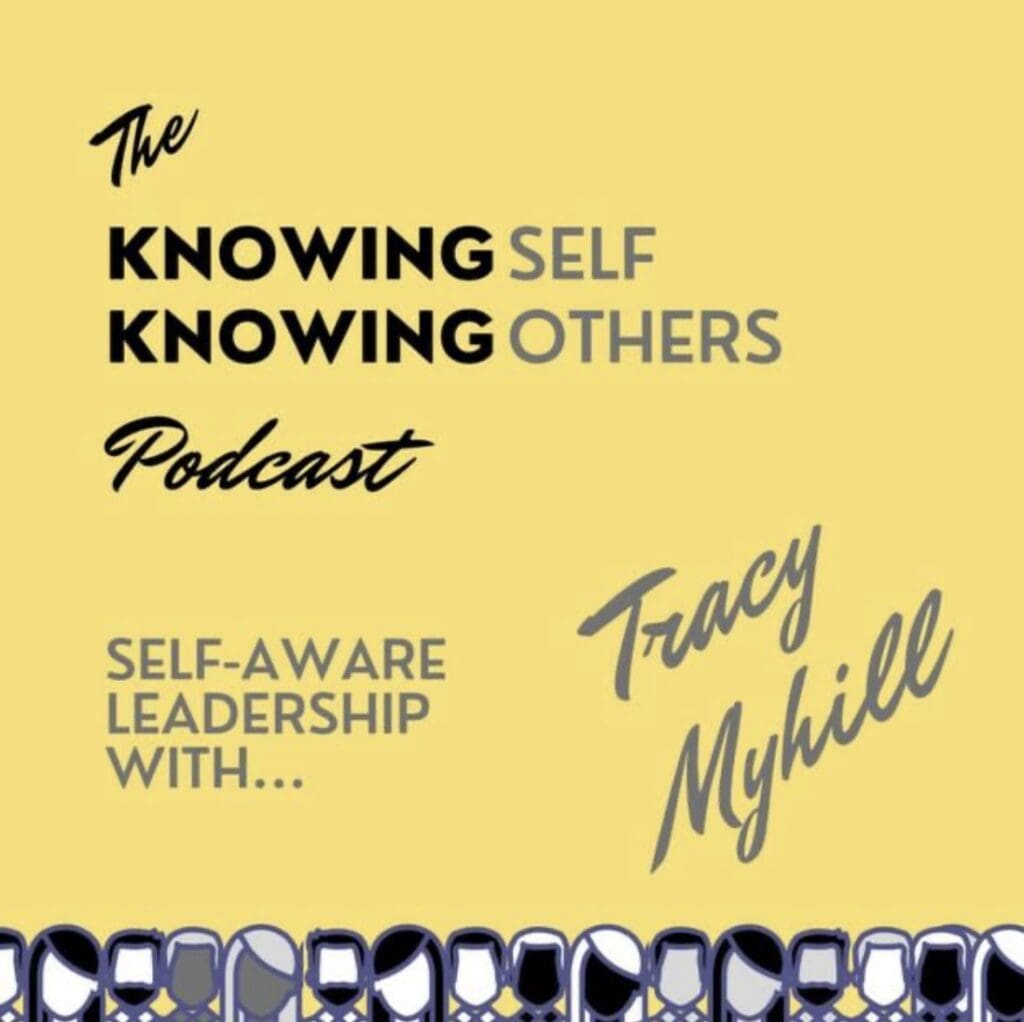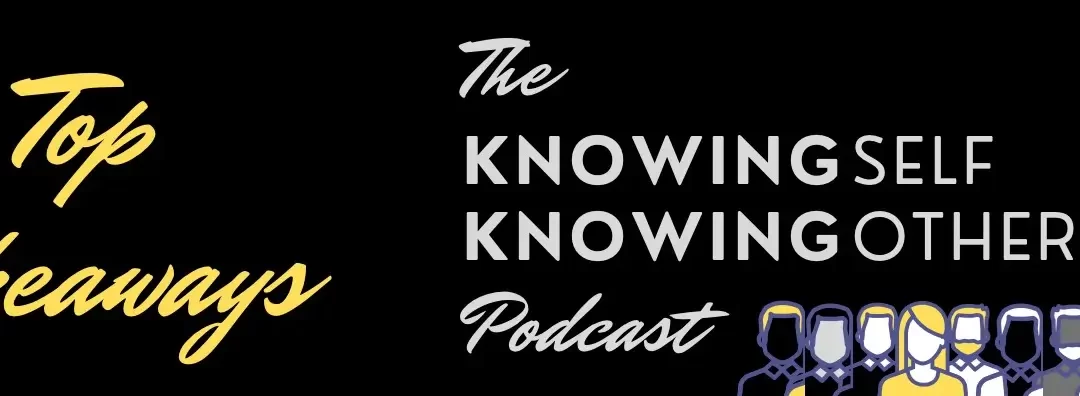I’m really lucky as a podcast host to get to interview some amazing people, some people who’ve written books, international experts, overseas speakers and people who’ve been CEOs. I was really pleased that Tracy Myhill OBE agreed to join me on the latest episode of The Knowing Self Knowing Others Podcast as she’d been a very senior leader in the Welsh NHS for most of my time in the working world. Having a chance to have a conversation with her, 1 on 1 was just brilliant. So, here are my Top Takeaways from our discussion….
Both workload and the behaviours of others impact on our stress levels. Stress in turn, impacts and influences our behaviour meaning that we show up at our worst. The more stressed we are, the worse we behave.
People leave people they don’t leave organisations. If you don’t know if your behaviour impacts others, you’ll loose people through blissful ignorance
People are attracted to people. If you have a reputation as a leader who’s self aware, people will hear about that and they will want to come and work with you. The best people attract the best people. The self aware people retain the best people.
The saddest thing to see is loosing good, skilled people through blissful ignorance: because you had no idea of the impact you were having on them, which forced them to go somewhere else. By the time you realise the power of your impact, it’s usually too late.
Social leaders, those who lead without a formal job title: trust those around them, are open, engaging, look out for people, spot stressed people who are struggling, help, suggest development opportunities for others – even their seniors, are honest, give honest feedback, can connect, they understand their people, they care for their team members, they’re collaborative not competitive. This is relevant to their colleagues, peers, managers, directors reports. Amazing what can be delivered by leaders without leadership titles.

Feedback is a gift – if you’re prepared to receive it. The best leaders will consistently seek it out and ask: did I get the best out of everybody? Did everyone get a chance to comment? Is there anything I could have done differently? Is there anything we can do differently next time?
People rise to strategic level roles in all sorts of ways: expertise, qualifications, understand the business, but in latter years it’s become clear that it’s not just what you know that’s important in leadership, but how you show up and how you lead. Now less likely to get to leadership positions if you don’t focus on value, behaviours and awareness as well as technical knowledge and expertise. Compassionate leadership is more at the forefront than ever before.
Covid was a traumatic, stressful and difficult time. No leader had been in that position before. Those who demonstrated humility, engagement and awareness rose to the fore. As terrible as COVID was, it brought out the best in leadership and bright people who had previously been hidden were elevated and demonstrated amazing leadership.
Leaders are jacks of all trades and masters of none so we need to be vulnerable to open ourselves up to the strengths of others. These days, you can say ‘I’m not good at this, I’m not comfortable here, I’ve had no experience of that’ with no accusation of weakness. You couldn’t have said that 20 years ago.

